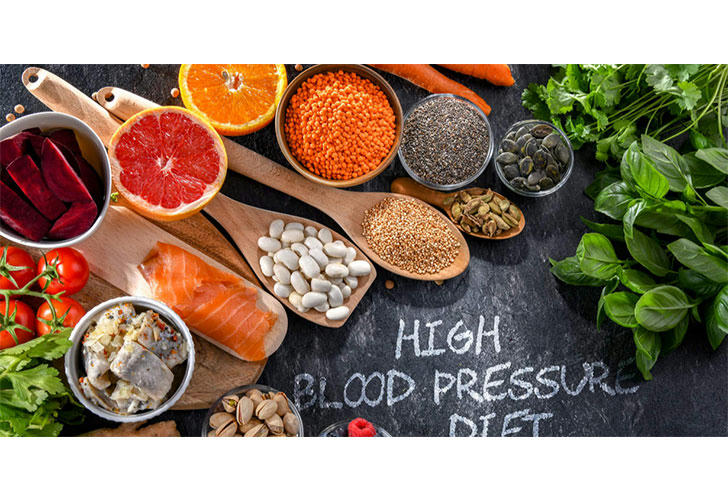What should you eat if you have hypertension?
High blood pressure, or hypertension, is a common health issue among seniors that can lead to serious complications, including heart disease and stroke. A well-structured diet is essential for managing blood pressure effectively. This article will explore dietary recommendations specifically tailored for seniors with hypertension, focusing on the Dietary Approaches to Stop Hypertension (DASH) diet, which has been shown to be particularly beneficial.

Understanding Hypertension and Its Risks
Hypertension is often referred to as a "silent killer" because it usually has no symptoms but can cause significant damage to the heart and blood vessels over time. In seniors, the risk of developing hypertension increases due to factors such as aging blood vessels, lifestyle choices, and genetic predispositions. Managing blood pressure through diet can help reduce these risks and improve overall health.
The DASH Diet: A Proven Approach
The DASH diet emphasizes the consumption of nutrient-rich foods while minimizing sodium intake. This dietary approach has been extensively studied and shown to lower blood pressure effectively. Key components of the DASH diet include:
Fruits: 4-5 servings per day
Vegetables: 4-5 servings per day
Whole Grains: 6-8 servings per day
Lean Proteins: 2 or fewer servings of meat, poultry, or fish per day
Low-Fat Dairy: 2-3 servings per day
Nuts, Seeds, and Legumes: 4-5 servings per week
Healthy Fats: Limited intake of saturated fats and trans fats
Recommended Foods for Seniors with Hypertension
1. Fruits and Vegetables
• Aim for a variety of colors and types to maximize nutrient intake. Examples include berries, oranges, bananas, spinach, carrots, and broccoli.
Benefits: High in potassium, magnesium, and fiber, which are essential for heart health.
2. Whole Grains
• Choose whole grain bread, brown rice, quinoa, and oatmeal.
Benefits: Rich in fiber and nutrients that help regulate blood pressure.
3. Lean Proteins
• Incorporate skinless poultry, fish (especially fatty fish like salmon), beans, and legumes.
Benefits: Provides essential protein without the saturated fat found in red meats.
4. Low-Fat Dairy
• Opt for low-fat milk, yogurt, and cheese.
Benefits: Good sources of calcium and vitamin D that support bone health.
5. Nuts and Seeds
• Include almonds, walnuts, flaxseeds, and chia seeds.
Benefits: Provide healthy fats and fiber that can help lower cholesterol levels.
6. Healthy Fats
• Use olive oil or avocado oil for cooking instead of butter or margarine.
Benefits: Monounsaturated fats are beneficial for heart health.
Foods to Limit or Avoid
1. Sodium
• Aim for less than 2,300 mg of sodium per day; ideally reduce to 1,500 mg for greater effect.
• Avoid processed foods high in salt such as canned soups, deli meats, and snack foods.
2. Saturated Fats
• Limit intake of red meat and full-fat dairy products.
• Choose lean cuts of meat and low-fat dairy options.
3. Added Sugars
• Reduce consumption of sweets and sugary beverages.
• Opt for natural sweeteners like honey or maple syrup in moderation.
4. Alcohol
• If consumed, limit alcohol intake to moderate levels (up to one drink per day for women and two drinks per day for men).
Recommended Products for Following the DASH Diet
1. Meal Prep Containers
• Helps with portion control and organization.
2. Low-Sodium Seasoning Blends
• Enhance flavor without adding sodium.
3. Whole Grain Products
• Whole grain pasta and bread options for healthier carb choices.
4. Nutrient-Rich Snacks
• Healthy snacks like nuts and dried fruits for on-the-go nutrition.
5. Blood Pressure Monitor
• Keep track of your blood pressure at home to monitor progress.
Tips for Success on the DASH Diet
1. Plan Your Meals: Take time each week to plan meals around DASH-friendly foods.
2. Read Labels: Pay attention to sodium content when shopping for packaged foods.
3. Stay Hydrated: Drink plenty of water throughout the day; avoid sugary drinks.
4. Involve Family Members: Encourage family participation in meal planning and preparation to make it a fun activity.
Conclusion
Managing high blood pressure through dietary changes is both effective and achievable with the DASH diet. By focusing on nutrient-rich foods while limiting sodium and unhealthy fats, seniors can significantly improve their heart health and overall well-being. Incorporating recommended products into your routine can further support your journey toward better health. Always consult with a healthcare provider before making significant dietary changes or if you have specific health concerns related to hypertension.
